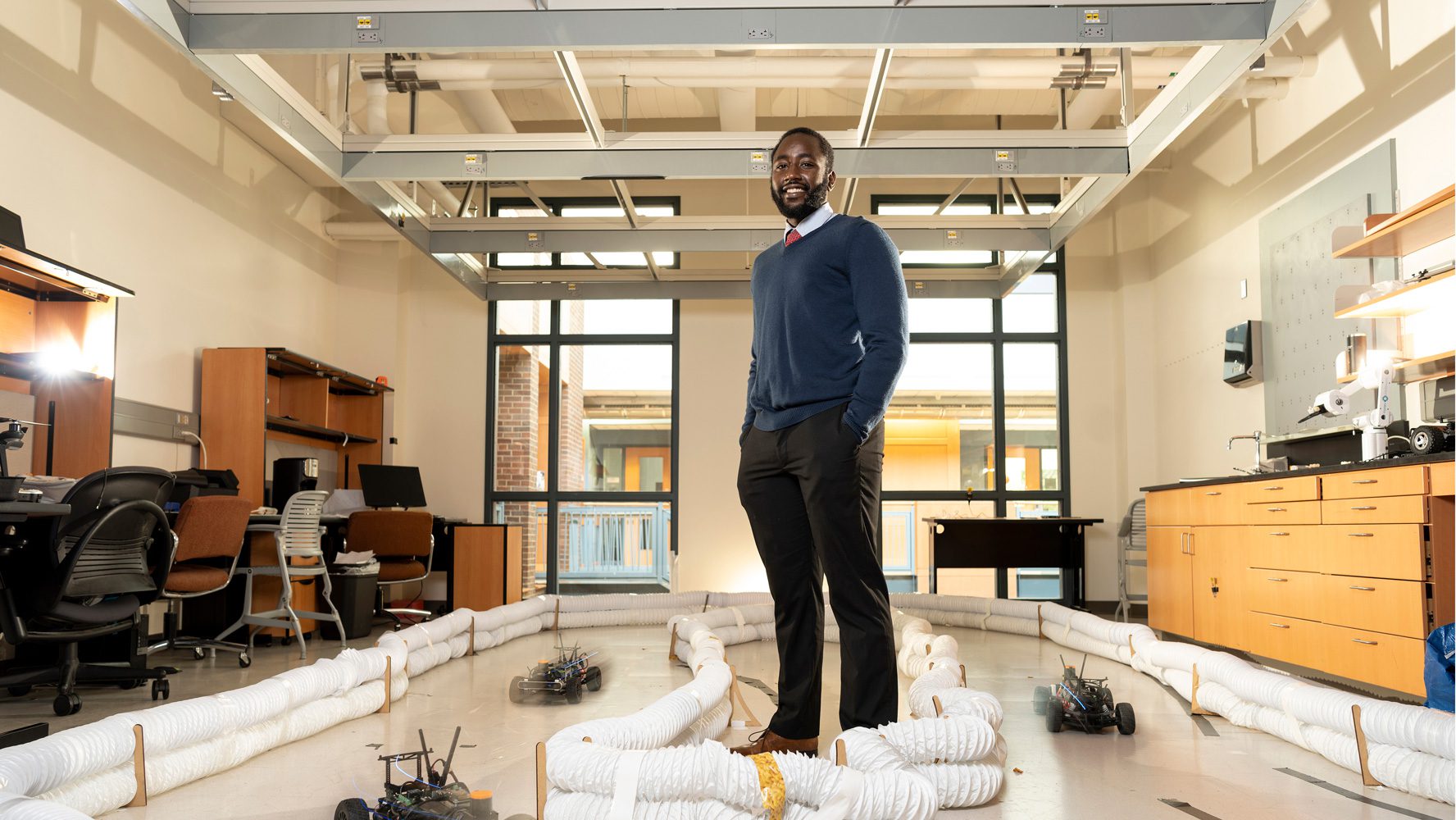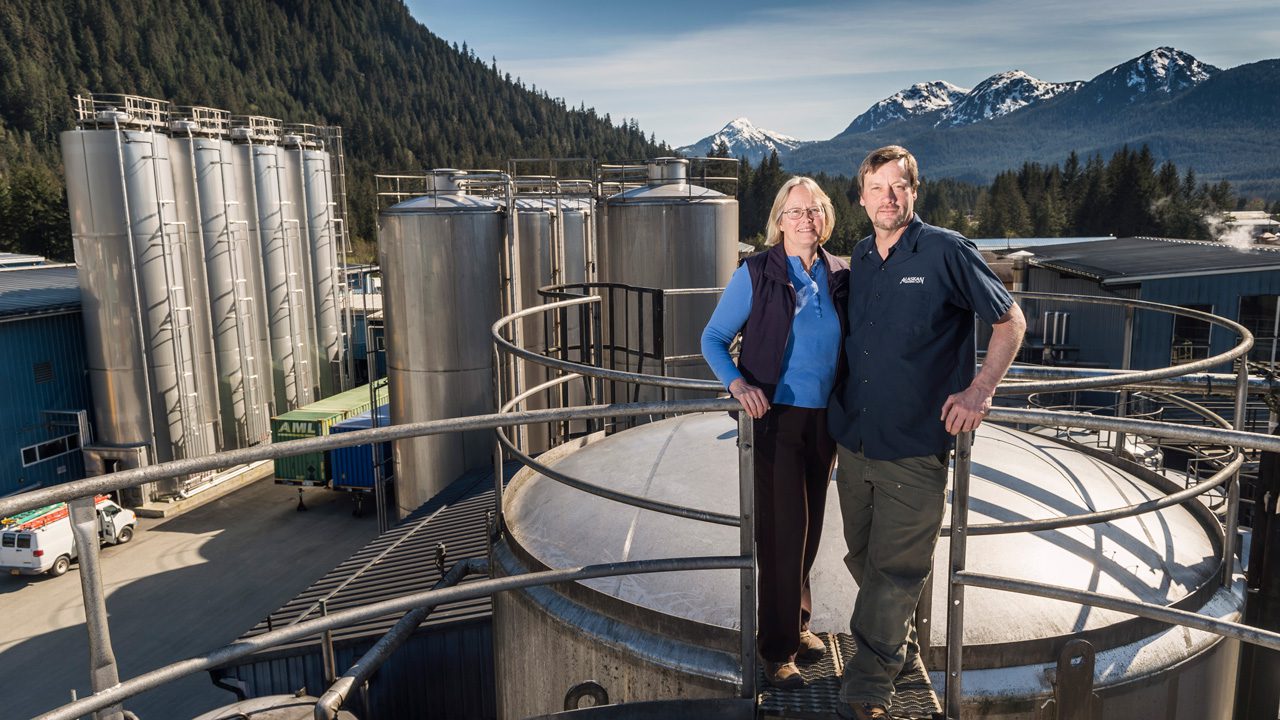
Features
‘No Prisoner in this Lonely Room’
A poetry project connects cancer patients to words of hope and strength.
By Kelley Bruss
Cancer doesn’t just steal physical health. It can steal energy, concentration, sometimes your very words.

Elizabeth Collins ’21
“Imagine every three months they’re changing heavy-duty medications on you,” says Ginny Cartee of Laurens, South Carolina, who was diagnosed with breast cancer in 2015. She grieves the loss of memory and focus and processing skills she once took for granted.
“My goal is to get my words back,” says Cartee, one of the first participants in What a Word’s Worth, offered through Furman and the Cancer Support Community at the Prisma Health Cancer Institute. “This program meets a real need.”
What a Word’s Worth connects cancer survivors, caregivers and others with poetry that affirms the ideal of siblings Dorothy and William Wordsworth: Poems should be more about doing good in the world than about the sublime.
Elizabeth Collins ’21, an English major from Buffalo, New York, designed the program with the help of Michele Speitz, associate professor of English literature and director of the Furman Humanities Center. Collins says she wanted to offer people “the joy and love of talking about poetry.”
Jeff Cowton, curator and head of learning at the Wordsworth Trust in Grasmere, says bringing poetry to people in isolating situations is in perfect keeping with the Wordsworths’ vision. Dorothy’s journal is full of entries about the village’s poor and ill and mourning. Her brother’s poetry immortalizes unknowns in works such as “The Female Vagrant” and “The Discharged Soldier.”
“They’re both very interested in the people (who are) at risk of being forgotten and overlooked,” Cowton says.
Cartee left her first poetry session full of confidence. Battling cancer can lead to feelings similar to post-traumatic stress disorder, she says. Pushing back against those feelings is a rush.
“Any little thing that’s an accomplishment is a huge step forward,” she says.

Elizabeth Collins ’21 and Michele Speitz
‘What about the sister?’
Collins came to Furman planning to study science. But when she took a literary theory course her sophomore year, everything changed. “This is where I’m supposed to be,” she says. The class led Collins to choose the British Isles study abroad program for fall 2019.
After a whirlwind beginning in Stratford – classes with the Royal Shakespeare Company during the day, plays every night – the group traveled to England’s Lake District and shifted gears to the Romantic Age. Speitz’s first assignment for them was a theoretical grant proposal: What would the students want to do using the vast collection of historic items at the Wordsworth Trust and the Wordsworths’ home, Dove Cottage?
Cowton called Speitz aside as she was explaining the assignment: “Michele, what if we make it real?”
He asked the 12 Furman students to write proposals for more than simply a grade. One winning project would receive funding from the Wordsworth Trust. Cowton had never done anything like that before. But “it fits in with our whole purpose,” he says.
Collins was intrigued by Dorothy Wordsworth and the role she played in her brother’s enduring works.
“I was like, ‘Well, what about the sister?’” Collins says. “She wrote down a lot of the details that ended up in William’s poems.”
Dorothy Wordsworth’s journal was not published in full for almost 100 years. But eventually “people started to recognize it as a great work in its own right,” Cowton says. Collins’s winning proposal was timely: The Trust is celebrating Dorothy Wordsworth’s 250th birthday this year.
‘Not sitting on your own little shelf’
One story in particular captured Collins. When children who lived nearby were orphaned, Dorothy Wordsworth wrote a narrative of their story and circulated it through the community, asking for help.
“These skills help us turn the page and move forward,” she says. “I see this as an opportunity to take more steps.”
– Ginny Cartee

Ginny Cartee at Camp Fellowship on Lake Greenwood in the Spring of 2020. The camp is the host site for Red Letter Day Retreats designed for cancer survivors.
Collins originally planned to take her poetry project into shelters for women and children. She envisioned readings that would resonate and empower – and the opportunity for the women to tell their stories and let Collins circulate them via the Web, along with donation appeals for the shelters.
COVID-19 put an end to that plan. Collins spent the summer of 2020 researching and brainstorming ways to change course as a fellow for the newly created Furman Humanities Center.
Furman’s connections with Prisma Health through the Institute for the Advancement of Community Health led to a conversation about the isolation brought on by the pandemic.
“Everyone right now needs some sort of connection and, at the end of the day, that’s what Dorothy was trying to write about,” Collins says.
Oncology patients know the pain of physical and emotional isolation, which has been intensified by the coronavirus, says Kerri Susko, director of the Cancer Support Community (CSC) at the Prisma Health Cancer Institute.
The Cancer Support Community is an international organization that addresses the social and emotional needs of anyone impacted by a cancer diagnosis, from patients to caregivers. Programs at CSC in Greenville, South Carolina, already included writing and reading opportunities. Cartee says the poetry program added depth with a practical method for savoring words again.
She thinks her new skills will help her fight back against the cumulative effects of stress, medication, sleep interruption and pain.
“Being able to overcome all of that is not easy and takes a kind of instruction,” she says.
Cartee had worked as a math teacher and a grant writer before cancer pushed her into semiretirement.
“I could turn around a 30-page narrative in a week,” she says.

James Emmanuel ’21, Caroline Scudder ’20, Emilia Hyland ’21, Caroline Atwater ’21, Makenna Christensen ’21, Sophie Kline Schaffer ’21, Carly Anderson ’21 and (centered below) Elizabeth Collins ’21 atop Nab Scar, above Rydal Water before the pandemic.
Now, both writing and reading are laborious as she struggles to remember words from the beginning of a page when she reaches the end.
“This class will give us back the pleasure of reading,” she says.
The program also offers the pleasure of exploration. A cancer diagnosis can have significant impact on a person’s perspective, Susko says.
“There’s an interest in exploring new things and changing, not sitting on your own little shelf anymore,” she says.
Dorothy’s pain
What a Word’s Worth is a relaxed conversation about words. Collins uses old and new poems that she hasn’t studied herself, so she’s experiencing them fresh, along with the participants.
Sessions begin with a brief introduction to Dorothy Wordsworth and her vision of what words could offer. There’s a special connection, too, to people enduring pain and sickness. Dorothy suffered from both physical and mental illness at the end of her life and was often bedridden.
Memories of life outside the walls of her room were part of what sustained her. “No prisoner in this lonely room,” she writes in one of her poems.
“In a weird way, COVID allowed us to honor what happened to Dorothy later in her life even more,” Speitz says.

Michele Speitz
“In a weird way, COVID allowed us to honor what happened to Dorothy later in her life even more.”
– Michele Speitz, director of the Furman Humanities Center and associate professor of English literature

Dorothy Wordsworth
Most of each session is spent reading poetry aloud and then, as a group, conducting simple analysis, using questions and prompts Collins and Speitz developed.
Collins practiced with multiple groups before hosting the first official session via Zoom in fall 2020.
“It was actually easier to talk to them than to our original test subjects,” Collins says. “Once we started reading poetry, things just meshed.”
The poems are chosen for themes of hope and empowerment, connecting people and places, and love of nature. For Cartee, the time is about both the words and a renewed ability to enjoy them.
“These skills help us turn the page and move forward,” she says. “I see this as an opportunity to take more steps.”


